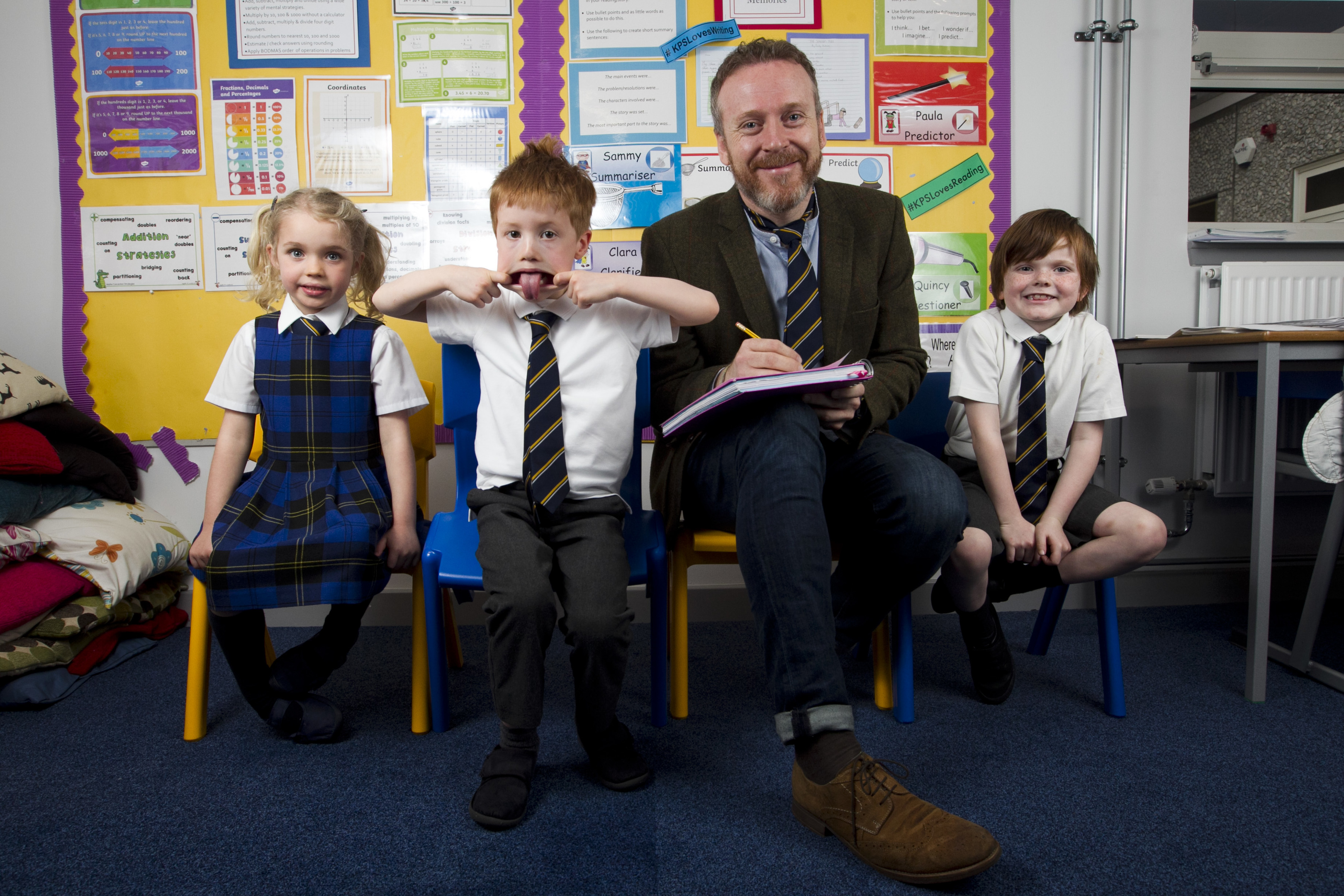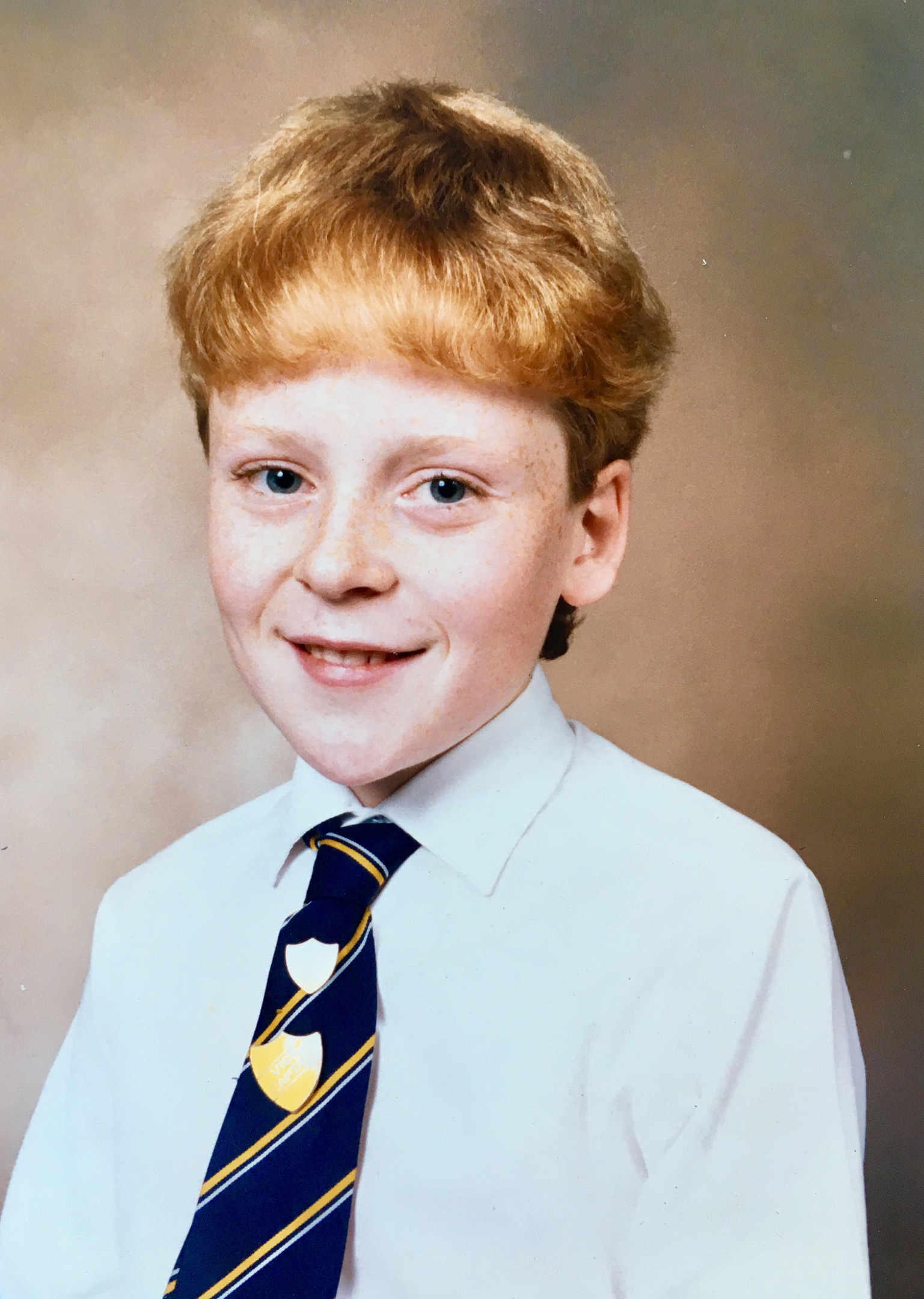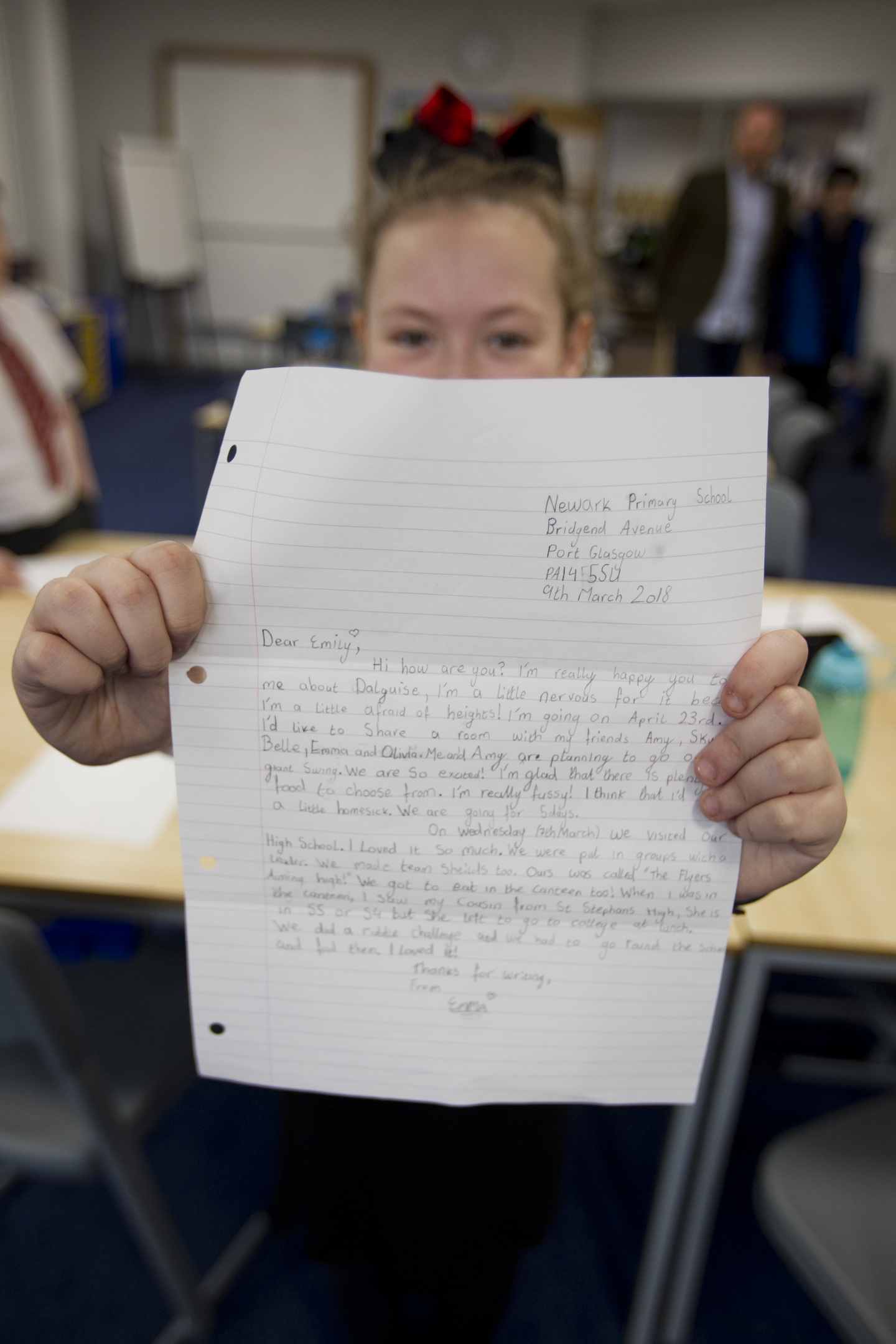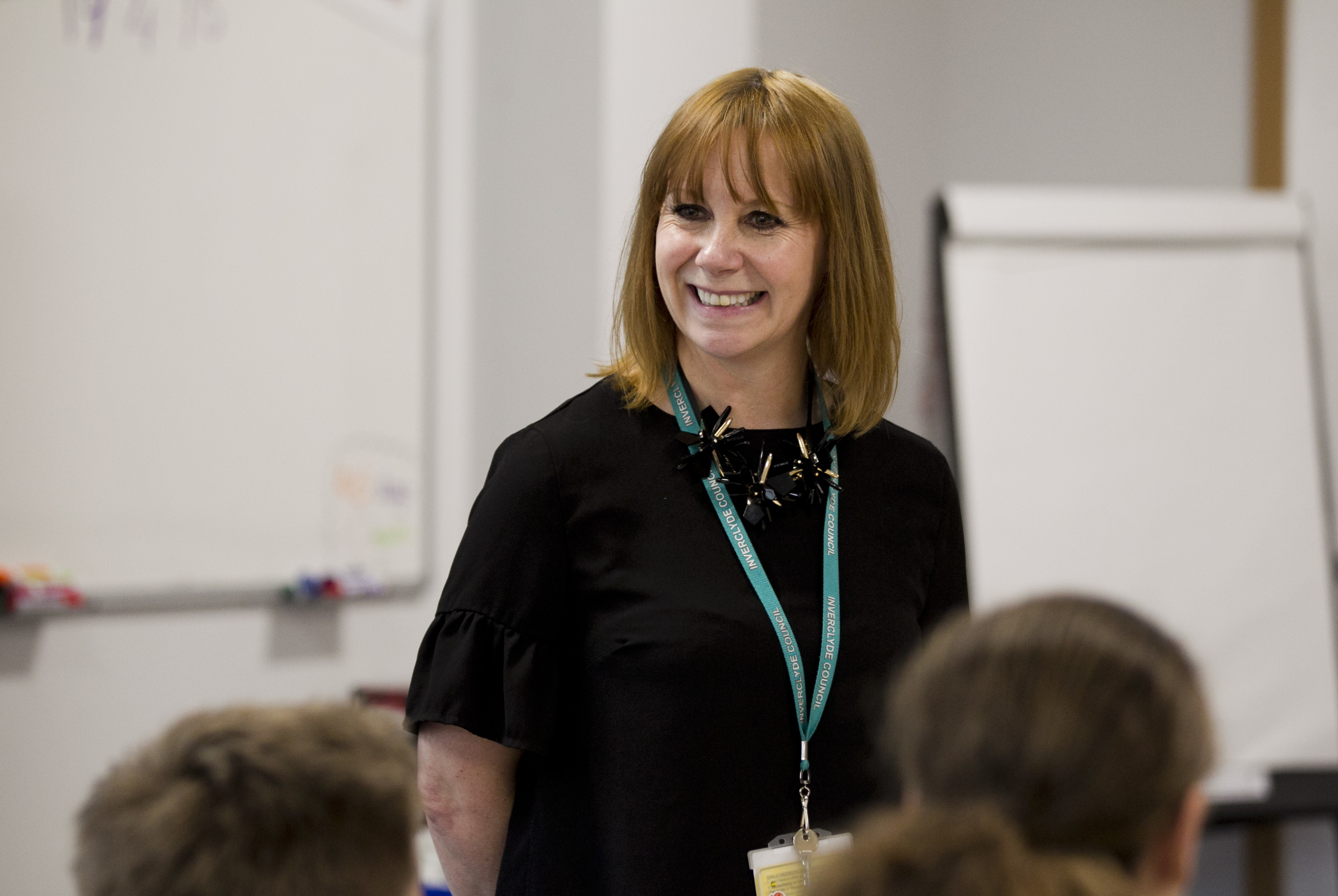
THE letters were sent more than 30 years ago between two young boys keen to become friends.
Now, decades later, those childhood exchanges between my penpal Stephen O’Rourke and myself have inspired a new generation of childhood letter writers in the towns where we grew up.
Hoping to ease our transition from P7 to S1, my big sister Wendy arranged for me to write letters to her pal Janet’s wee brother Stephen in the late 1980s.
Stephen and I were at different primary schools in the neighbouring Inverclyde towns of Kilmacolm and Port Glasgow, due to follow our sisters into Big School at St Stephen’s in Port Glasgow several years later.
We eagerly exchanged letters, sharing jokes and tales about holidays, family, sport and schoolwork, laying the bedrock of a boyhood friendship which, our sisters intended, would make us allies in the early days of high school.
Stephen, though, ended up at a different secondary, and our letters petered out as our teenage years began and we found our way through secondary education, making new friends as we went.
Our story became one of the threads of my BBC Radio Scotland documentary Lost Letters, detailing my attempts to reconnect with the penpals from my youth after finding the faded missives in an old shoe box in my parent’s loft last year.
The quest took me from New York to Nairn, and brought about first-time meetings as well as connecting the memories, words and photographs from the distant past to some magical, unexpected reunions with forgotten friends in the present day.
It even led to me finally meeting my old letter-writing chum Stephen, now a top QC in Edinburgh, and rekindled the exchange of letters with some of my old pen pals.
Last week, I discovered how that exchange of letters between Stephen and myself has seeded friendships between children of Port Glasgow and Kilmacolm today. After listening to Lost Letters, the teachers at Kilmacolm Primary and Newark Primary, Port Glasgow, took a lead from our sisters’ penpal initiative, setting up an inter-school letter writing programme among Primary 7 pupils ahead of their transition to first year at Port Glasgow High.
Kilmacolm Primary head teacher Simone McCredie said: “When we heard about your exchange with Stephen on Lost Letters, we thought that was the perfect way to encourage children to write letters. It’s an art which is disappearing because of all the modern technologies. Children really wouldn’t ever think about sending anybody a letter now, they’d rather send a text or email or WhatsApp.
“But it is of great educational value, because of the literacy skills which go into writing a letter.
“We are a small school, but the pupils from our school and Newark Primary will go into Port Glasgow High together, and it’s very important these children have as much contact with their future friends as possible.”
Last week, pupils from Newark Primary and Kilmacolm Primary briefly met for the first time, seven months and half a dozen letters later, taking the next steps towards friendships their teachers hope will sustai them throughout their school career, and possibly beyond.
Primary 7 teacher Lynn McPherson said: “We had a visit from a teacher at Port Glasgow High who brought in a box of letters she had kept, including letters she’d exchanged with a pen pal in America.
“They forged such a friendship that her pen pal came over for her wedding, and that helped with the buzz among our children that they could start a friendship by writing to someone else.
“Some of the children are opening up to each other in letters about their lives, things they might not necessarily share with the children in their own class. They’re developing confidences with each other.”
Newark Primary teacher Kim Holden added: “It’s so important to have the authenticity of writing letters, and to build the skills that come with writing to each other.”
Returning to my old classrooms all these years later, the memories of reading books like The Animals of Farthing Wood, Charlie and the Chocolate Factory and Flat Stanley remain clear.
It’s here that I first started telling stories, writing in my Primary 4 news jotter about my mother demolishing a display in Woolworths, my dad turning the garden shed into a bar for a summer barbecue and my grandad letting me put up his Christmas decorations in November.
And it was in the pages of my Creative Writing jotters that the spark of an enduring personal love of putting words down on paper took hold.
Revisiting 30 years after I left, I was spirited to see abundant evidence of an enduring dedication to reading and writing.
The walls are bursting with displays of work, from book reviews to letters from authors like JK Rowling and Christopher Brookmyre, and the shelves are crammed with books.
Every class from P1 to P7 is involved in a wider letter-writing initiative, which has seen the school post notes as far away as Africa, Canada and India.
My old school’s recognition of the magic of words has led to them being nominated at the forthcoming Scottish Education Awards. And the new generation of letter writers are developing an appreciation for the slower, more considered form of communication.
Newark pupil Thomas Williams, 11, said: “I’d never written to anyone before, but it is very exciting to get a letter from your pen pal.
“You want to open it up and find out what they’ve written.
“Doing this has made me think about writing to other people, too.
“It’s different from sending messages through your phone, where there are things like auto-correct and less mistakes.”
Classmate Emma Lewis, also 11, added: “I discovered my pen pal likes netball and so do I.
“This helps us get to know people before we get to meet them properly.”
Their pen pals Jason Stevenson and Emily Wilson, both 11 and from Kilmacolm, agree they’ve started new friendships which could last for years.
Jason said: “It’s really good to have other people you’ve never met to talk to. It’s like a big mystery.”
Emily added: “The whole class has been really excited to get letters, and think about what they’re going to say in reply.”
Lost Letters is available to watch on the BBC iPlayer until Tuesday.

Enjoy the convenience of having The Sunday Post delivered as a digital ePaper straight to your smartphone, tablet or computer.
Subscribe for only £5.49 a month and enjoy all the benefits of the printed paper as a digital replica.
Subscribe

